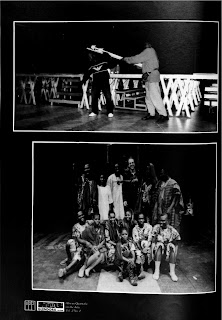Vassiliou: ‘Don’t you dare' cut EU budget for culture | EurActiv
http://www.euractiv.com/print/priorities/vassiliou-dare-cutting-budget-cu-
Published on EurActiv (http://www.euractiv.com)
Published on EurActiv (http://www.euractiv.com)
Vassiliou: ‘Don’t you dare' cut EU budget for culture
Published: 22 January 2013 | Updated: 23 January 2013
Androulla Vassiliou, the European commissioner responsible for education and culture, has urged EU leaders not to cut the budget for culture. EurActiv Slovakia reports.
Background
The European Capitals of Culture scheme was created by the EU in 1985 and has since become one of the most prestigious features on Europe's cultural calendar.
According to the European Commission, candidates must fulfil three main criteria: integrating a true European dimension, reinforcing cooperation among EU countries with public support, and highlighting the city's role in developing culture in Europe.
Successful candidates must also devise a programme with a lasting impact that contributes to the long-term cultural, economic and social development of the city concerned.
“Don’t you dare reduce the budget for culture. Culture is particularly necessary in times of crisis,” Vassiliou said on 20 January in Košice, Slovakia, the European capital of culture for 2013.
Her appeal comes ahead of the EU leadership summit on 7-8 February, which is expected to lead to
adoption of the EU budget for 2014-2020.
adoption of the EU budget for 2014-2020.
The proposed EU spending on culture, or so-called ‘Creative Europe’, is a modest €1.8 billion for the period 2014-2020. The financing comes under the Heading 3 of the EU budget "Security and citizenship". This category has been one of the biggest victims of the changes made at the last budget summit on 22-23 November, which failed to reach an agreement.
The official launch of the European capital of culture 2013 included nearly 200 cultural events in 70 locations in the eastern Slovak city.
“The initiative is a clear illustration of the European Union’s commitment to cultural diversity, but it also shows how culture can unite people across borders in Europe. It demonstrates that the European Union is more than just a market, it reminds us that culture is the heart and soul of our shared European project,” said Vassiliou, who is responsible for Education, Culture, Multilingualism and Youth.
“The title of Capital of Culture is the single most significant cultural project in the Slovak history,”
said Culture Minister Marek Maďarič.
said Culture Minister Marek Maďarič.
City of culture, a boon for tourism and investments
The European Commission was represented by Vice-President Maroš Šefčovič, a Slovak national. Šefčovič said Košice should reap benefits from being the European Capital of Culture. He reminded that Košice has recently been promoted by appearing in the shortlist of 10 best tourist destination recommended by CNN for 2013.
Šefčovič recalled the case of the French city of Lille, European Capital of Culture for 2004, which succeeded to obtain a €8 return for every euro invested, in terms of increased revenues from tourism or new business opportunities.
“As the pride of the people of Košice of their city is well known, I believe this will be a year that they will remember well and I, coming from Bratislava, will hold my fingers crossed for them”, he said, alluding to the traditional "rivalry“ between the two Slovak biggest cities.
The message from the opening ceremony was that Košice represents a natural crossroad between East and Wes and aims to revive the prominence the city had in the first half of the 20th century, with its multicultural touch and as a hometown of the famous writer Sandor Marai. The saying goes that “what Kafka represents for Prague, Marai does the same for Košice”.
Celebrations, however, were marked by criticism from the artistic community for the suspicious redistribution of money and overdue investment projects.
The heavily industrialized city is known for its steel industry and becomes the EU capital of culture at the time when one of the biggest employers in the country, the company ‘U.S. Steel Košice’ is contemplating selling the steel plant, which might have a major impact on the region. No final decision has been taken yet.
Next Steps
- 7-8 Feb.: Summit on the EU budget for 2014-2020


Comments